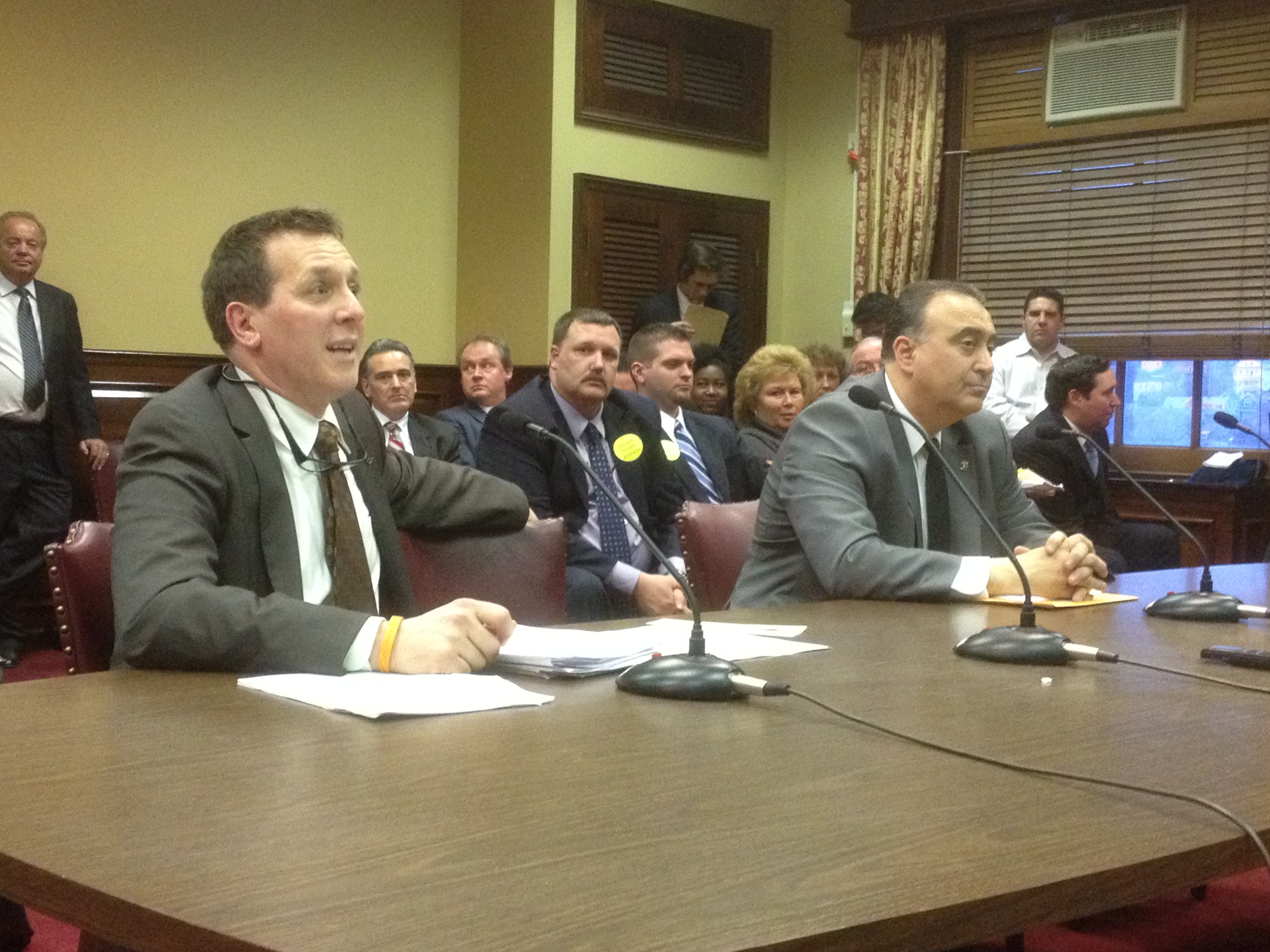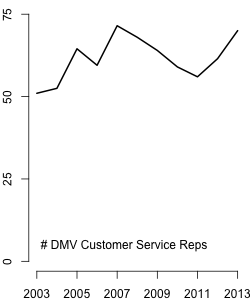 The recent article by Michelle Alexander appearing in the New York Times, “Crash the System,” has stirred up a great deal of interest among the activist community. Most of the people I have heard from, however, have been those who never faced imprisonment- including many lawyers and law students… i.e., people who actually read the New York Times or have it shared with them on their Facebook wall. Alexander’s article dangles a theory of overloading and “crashing” the criminal justice system: by everyone refusing the plea bargain and going to trial.
The recent article by Michelle Alexander appearing in the New York Times, “Crash the System,” has stirred up a great deal of interest among the activist community. Most of the people I have heard from, however, have been those who never faced imprisonment- including many lawyers and law students… i.e., people who actually read the New York Times or have it shared with them on their Facebook wall. Alexander’s article dangles a theory of overloading and “crashing” the criminal justice system: by everyone refusing the plea bargain and going to trial.
This crashing maneuver is nothing new to prisoners. The article itself spawned from a conversation between Alexander and Susan Burton, a formerly incarcerated woman who has since become a trailblazing activist and organizer on criminal justice reform. Having spoken with those who have done time in other states, I know most elements of the system are essentially the same no matter where you go.
When I was facing my own sentence, being held without bail for nearly three years, I counseled hundreds of men regarding plea bargains and trials. I could typically anticipate the first offer from the state, what he should counter-offer, and what the state will settle on. It was very formulaic, and a disappointment whenever someone took the first offer just to get out of the hideous conditions of pretrial detention (yet another tactic). And there was always that guy yelling, “People need to take everything to trial. Shut down that whole damn system.” And there is another guy saying, “I came in alone, I’m going out alone.”
In hindsight, I could have never organized these men to refuse plea bargains and go to trial for several reasons. First, there is something distinctly personal about one’s own sentence. Unlike conditions of confinement that affects everyone inside, the individual sentences can range from weeks to decades for actions that have nothing to do with each other. That early phase of confinement, in jail or “Intake,” is rife with suspicion, ego, and predatory tactics. Nobody is prepared to take a bullet for the person in the cell next to them.
Some of the commentary I have read by activists (who do not live in Highly Policed Communities) suggest that the nation’s arrested (mostly poor People of Color) should take this on. As if we have now found the secret method of change in a nice March On Washington and Occupy Wall Street way. They would put the onus of changing an oppressive system on the lashed backs of the oppressed. Sadly, due to the impotence of the American public at large, it will likely end up being just that. Others have asked the legal community what they can do in this situation, suggesting that a lawyer holds the key to a plea bargain and could actually counsel people to take a stand.
A lawyer’s job is to arm a client with as much knowledge as possible so they can make the best decision. This does not always happen, particularly in the world of young Public Defenders with massive caseloads. Not only does the typical lawyer have little knowledge about the totality of the system, from police tactics to prison conditions, parole hearings to probation violations, or employment discrimination to voting rights… most attorneys would not have time to truly explain this to an accused person.
Public Defenders, AND prosecutors, need to develop an ethical standard about collateral consequences, sentencing enhancements, and reduced standard of guilt (on violation hearings) so that people can intelligently accept/reject a plea. As of now, the accused generally hears “If you sign this, you can go home today.” Or “If you go to trial and are convicted, they will throw the book at you.”
One lawyer mentioned to me that he is currently pursuing a strategy against a sentencing enhancement by arguing how, when he was sentenced before, nobody said anything about getting extra time if he were convicted again. Every state has “bonus” time, such as Three Strikes in California, where people can get as much as 20 years to Life tacked on “just because.” Thus, the enhancement is often higher than all their previous sentences combined. This is a good legal strategy, similar to the successful argument in Padilla, holding that someone cannot be deported for a prior guilty plea when they were not told that the plea can result in deportation. Those in best position to fight a criminal conviction by taking it to trial are often facing lighter crimes at a young age.
My first plea was for marijuana possession. Four of us were traveling in a car, we were pulled over, and the police found a bag after nearly ten minutes. No warrant, of course. My friends all had families to report to, so I claimed it to be mine. When I went to court, the Public Defender met me in the hallway and never mentioned the Fourth Amendment. Instead she explained how if I pay a few hundred dollars the charge will go away if I stay out of trouble for a year. And I won’t have to do any time on it. Up until that point, I had contact with the police just about every year since I was 11 years old. It did not seem to matter to her whether or not I might have contact over the next year. This was a standard deal. Bargaining was not a concept in this plea.
My second plea, within a year of the last, was slightly more complicated, as they offered me five years suspended and five years probation. Same procedure in the hallway, but I insisted two things: I didn’t steal the car, and I was not intoxicated. The prosecutor amended the charge to Receiving Stolen Goods Over $500, and kept the sentence. I took it.
Many years later, when trying to get a driver’s license, the DMV told me I was convicted of refusing a breathalyzer. I felt this was ludicrous considering the police brought me unconscious into the hospital after a car wreck. But it was too late to challenge this, so I was told. The total tab to get back on the road was over $3000, including DWI classes and extra insurance. And yet today, this little bonus conviction doesn’t even show up on my record. Such is the ways of the system.
My final plea is the most telling. I called their bluff. I knew what I was actually guilty of, under law, and they initially agreed to this, and would ask the court to impose the maximum sentence. When I went to court for the official sentencing, they pulled the rug out and wanted a more severe charge. Apparently the Attorney General wanted to keep his statistics up. I demanded a trial. I told my lawyer, “Going through life as a convicted murderer is likely to be much different than being labeled a convicted manslaughterer.”
My lawyer asked what I would take on second degree murder. I told him 15 years. He said they would never go for it. I said “get a jury, let’s go to trial.” He started to explain how summer was coming, nobody wants to do trials, people go on vacation… I reminded him I had been held without bail for almost three years. I wanted my “Speedy Trial,” which is supposed to be within 180 days. My lawyer went back upstairs.
The guys in the holding pen were scared for me. “Man, you’re rolling some big dice.” The few who knew me had to remind me I knew the law and wouldn’t get rolled over. Manslaughter itself carried up to 30 years, and I knew if I lost a trial I would get just that, and hopefully be out in 15 or 20 on parole. I would rather get 30 for manslaughter than 25 for murder. I knew it would have a domino effect on my entire life.
It only took about fifteen minutes for my lawyer to come back down. The prosecutor was going to ask the court to impose 25 years for second degree murder- they knocked off five. If I pled guilty, the judge could still do whatever he wanted. If he went higher, naturally I would have screamed out in the courtroom about “fraud, deceit” and other such things that would get my “plea” thrown out. Upstairs, the prosecutor who previously recommended a manslaughter conviction, labeled me before the court in as vile terms imaginable. He could have said the same things about Osama bin Laden, as there really isn’t much else to say. After hearing statements all around, the judge gave me 45 years, with 20 years to serve. I didn’t scream out, or anything. I was already numb. That chapter of my life was officially over.
Two decades later and I can say with certainty that the label on me does not rest. The label says nothing about what I actually did, but its easy for journalists and others to use- people can attach a set of images and presumptions to it. My lawyer was not overly concerned about this label, nor any collateral consequences. A nice enough guy, it just wasn’t in the cards to discuss anything other than the actual number of years in prison. We did not talk about life on parole, or on probation, and how that will impact me. Ultimately, even a Jailhouse Lawyer like myself who spent years studying the rules of evidence and constitutional provisions, did not make a fully informed choice regarding my plea.
The eighteen year old me could have been part of crashing the system. I had a perfect case for trial that carried a light sentence overall. A good lawyer would have taken the extra hour to get it dismissed. A good lawyer would explain to young people that if one takes the statutory maximum sentence, suspended, and goes home today on probation, they are very likely to serve at least five years on that probation violation… because something is likely to happen between ages 20 and 30- particularly in Highly Policed Communities amongst my Black and Brown brothers and sisters. The nineteen year old me, facing serious charges, needed the benefit of those who keep the system in check. Unfortunately, I’ve found that those without criminal records are waiting on me to keep the system in check.











